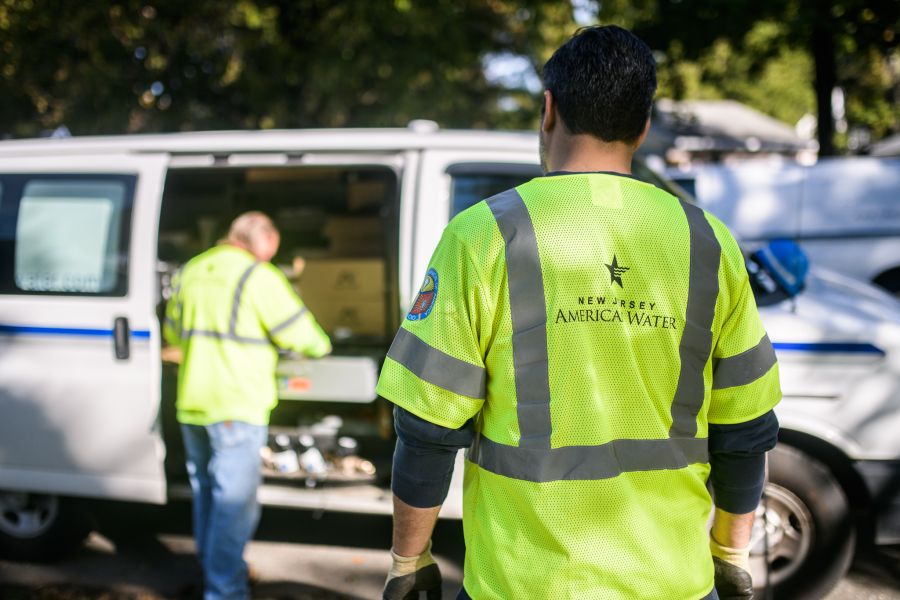The Latest Updates from New Jersey's Utilities Industry
New Jersey American Water Replaces 10,000 Service Lines
CAMDEN - New Jersey American Water announced today that it has replaced approximately 10,000 customer-owned lead and galvanized steel water service lines to date as part of its ongoing Lead Service Line Replacement program.
New Jersey American Water officials say they are on pace to meet requirements of a state law passed in 2021, which mandates all water providers to replace both utility-owned and customer-owned lead and galvanized service lines by 2031.
In response to this law in January 2022, New Jersey American Water published a webpage and map, located at newjerseyamwater.com/leadfacts, to allow customers to view the service line material of their property, self-identify in three easy steps, and report the material to New Jersey American Water so all lead and galvanized steel lines can be replaced.
"The considerable progress we’ve made in just three years demonstrates our unwavering commitment to modernizing water infrastructure and protecting public health,” said Mark McDonough, President, New Jersey American Water.
“We're not just meeting legislative requirements; we're setting the standard for proactive lead mitigation in New Jersey," he said. "Our work, however, is far from over, and we need our customers' continued cooperation to work with us to identify remaining lead service lines."
As required by state law, New Jersey American Water is notifying property owners with lead or galvanized service lines via direct mail annually until their lead or galvanized service line is replaced. This notification follows the company’s annual July inventory submission to the New Jersey Department of Environmental Protection (NJDEP).
New this year and beginning in October, customers with unknown service line material will receive a letter from New Jersey American Water with information about how to self-identify and report their service line material. This is also a requirement of the U.S. Environmental Protection Agency (EPA) rule for all water providers.
“New Jersey continues to pave the way for the nation in protecting the public from the harmful effects of lead in drinking water,” said state Environmental Protection Commissioner Shawn M. LaTourette. “The public’s response to these letters is critical to the success of evaluation and replacement of these lines for protection of public health.
"New Jersey American Water’s progress in lead service line replacements is a critical step toward improving the overall quality of drinking water in New Jersey," LaTourette said. "We commend water systems across the state who are working hard to protect and safeguard our communities.”
Additionally, an important next step for customers, New Jersey American Water will begin providing pitcher filters to customers this month after every lead or galvanized steel service line replacement statewide, along with the company’s information packet that includes helpful installation and flushing instructions.
Pitcher filter distribution to customers after these replacements will be required by U.S. EPA regulations under the updated Lead and Copper Rule Revisions (LCRR).
"The distribution of pitcher filters is a critical component of the comprehensive approach to lead service line replacement,” McDonough said. “While our water quality meets standards, these filters provide an extra layer of protection during the transition period after a service line is replaced. It's part of our commitment to proactively safeguard our customers' health and ensure compliance with federal regulations."
It is important to note that if a customer’s service line contains lead, it does not mean they cannot use water as they normally do. New Jersey American Water regularly tests for lead in drinking water and the water delivered to customers meets state and federal water quality regulations, including those set for lead.
Additionally, customers should go to www.dep.nj.gov/lead for information on how to reduce exposure to lead in drinking water.
